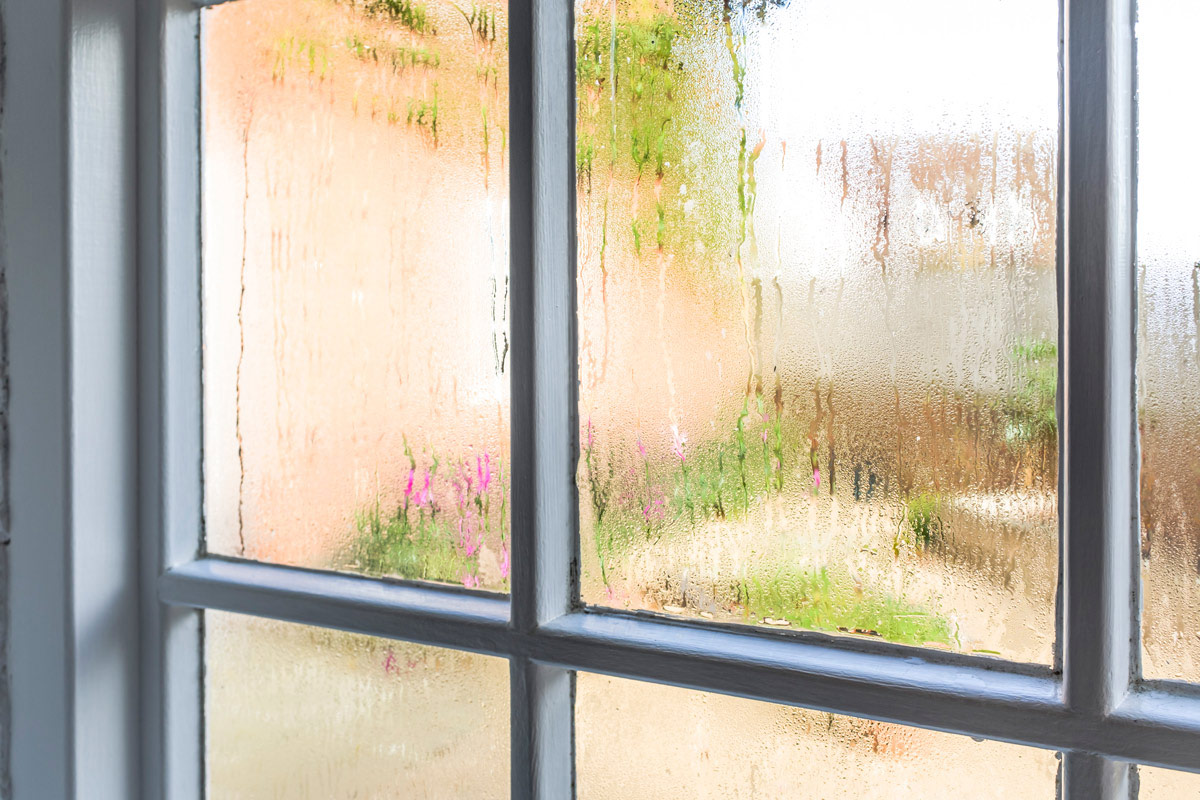Can’t see through your windows for moisture vapour? Condensation can be a real problem in period properties.
If you keep your windows closed to keep your period property warm, but then have to clear up a puddle of water from the windowsills every morning, you’ll understand this issue all too well.
How Mitchell & Dickinson can help
It’s practically impossible to get rid of condensation entirely because cooking, showers and even breathing put moisture into the air. But, we have a solution! Provided your condensation problems are caused by internally generated moisture, CosyGlazing can significantly reduce it.
Our experience has been that if customers have very heavy condensation as a result of moisture created internally, then CosyGlazing can reduce this to light condensation, and if they have light condensation from internal moisture sources, CosyGlazing will generally make it disappear completely.
To make sure you get the right solution, it’s worth finding out a bit more about the causes of condensation.

There are three main causes of condensation
1) Moisture content in the window timbers
If you’ve had cracked or broken putty (even with fine hairline cracks) for some time, or if there has been a time in the property’s history where windows were not well maintained, rain will have been running down the glass and soaking into the putty, particularly along the lower edges of the glass. This will have soaked into the window timbers and glazing bars where it can remain for many years, even after redecorating.
This moisture then creeps underneath the glass and comes out on the inside between the primary and secondary glazing, condensing on the inside of the glass. This causes condensation to be trapped in the void. If the window timbers have already become saturated with water, even if the windows are subsequently restored, moisture already in the wood will evaporate into the void and cause condensation. It is possible to find out if the window timbers are saturated by taking readings with a moisture content detector. However, the results can vary with the seasons. Timbers dry out in hot weather in the summer and become wetter again in the winter. Perfect joinery-quality timber has a moisture content of around 12% and we have found that windows suffering from condensation can have moisture content as high as 30-40%.
One solution to saturated timbers is to paint the window frames inside the void between the glass and the magnetic strips with a waterproof oil-based paint. This can prevent moisture evaporating into the void. However, the rest of the window frame is still painted with normal paint which is micro-porous and allows the timber to breathe.
2) Background humidity levels of the house
Every house will vary, even two houses next door to each other. This is because the ground underneath the house will have different moisture content in different places, with spring-like activity occurring in the soil beneath the house. Saturated ground and moisture ingresses are particularly strong when a property is below a hill or the outside ground level is higher than the floor level on any of the walls. Where humidity levels are high, condensation is more likely to occur.
3) Low ventilation levels
Other factors that contribute to moisture in the house are low ventilation levels. Larger rooms have more capacity to absorb the moisture created by cooking, washing and laundry (drying laundry in the house emits 2-3 litres of water per load, so drying laundry in the house significantly raises the humidity levels of the house).
To reduce humidity levels and ventilate the house regularly, consider damp proofing measures or tanking floors. Also, consider drying laundry outside if possible and opening the windows while cooking and bathing. In particular, a natural ventilation system is to throw open all the windows for a couple of hours on dry days. Mechanical ventilation systems can also be installed.
To find out how Mitchell & Dickinson can help reduce condensation in your period property, please get in touch.







